New research says that ARM-based computers including Apple Silicon are doing fairly well in a collapsing global PC market, as the market does a slow shift away from Intel-based processors.
Apple began its move to ARM-based M1 and M2 processors in 2020, abandoning Intel and dramatically improving the Mac. Since that launch, ARM has seen a buyout offer proposed then abandoned. Later, an initial public offeringwas proposed and potentially blocked.
ARM is still working toward that possible IPO in 2023. In the meantime Counterpoint Research says that the use of the company's technology is going to increase — and also be more "resilient" than the rest of the industry.
"The global PC market has been experiencing a demand downtrend after the cooling down of COVID-19 in 2022," wrote the company's William Li in a blog post. "The market saw its shipments decline 15% YoY in 2022 and is expected to see another high single-digit decline in 2023, according to Counterpoint Research's data."
"However," continued Li, "among all the PC sub-sectors, Arm-based laptops are expected to show a comparatively resilient demand throughout the coming quarters thanks to Apple's success with the MacBook series, increasing ecosystem support and vanishing performance gap with x86 offerings."
According to Counterpoint Research, Apple had 90% of the ARM laptop market in 2022. Also, since the launch of Apple Silicon, the market share of ARM-based laptops has grown from 2% to over 12%.
Consequently, says Counterpoint, "Apple's migration to its self-designed CPU has proved to be a shot in the arm for vendors" who had previously been uncertain about "developing Arm-based solutions."
Based on their existing work with ARM in smartphones, Counterpoint expects Qualcomm and MediaTek to deliver on their expressed interest in the technology.
"The two chip design giants are expected to launch ARM-based laptop solutions no later than 2024," says the research company. "We expect Qualcomm and MediaTek's solutions to see over 50% growth YoY on ARM laptops in 2024-2025."
The future of ARM-based laptops
Counterpoint notes that the global PC market "exited the expansion cycle in 2022," or in other words that sales are now going to decline. This means that any market share gained by ARM devices "will inevitably come at the expense of mainly two other vendors in the market — Intel and AMD."
"Based on our forecasts, we believe Arm could ultimately take around 25% share of the laptop market by the end of 2027," writes Li. "On the other hand, as the largest vendor in the PC market, Intel will suffer the most, losing almost 10% share to Arm solutions in five years."
"But it will still dominate the PC market with over 60% share," he concludes.
As late as September 2022, Intel was still blustering that it hopes to get Apple back despite the success of Apple Silicon. However, that came after the news in August 2022 that — aside from the Mac Pro — Apple has now removed all traces of Intel products in its devices.
 William Gallagher
William Gallagher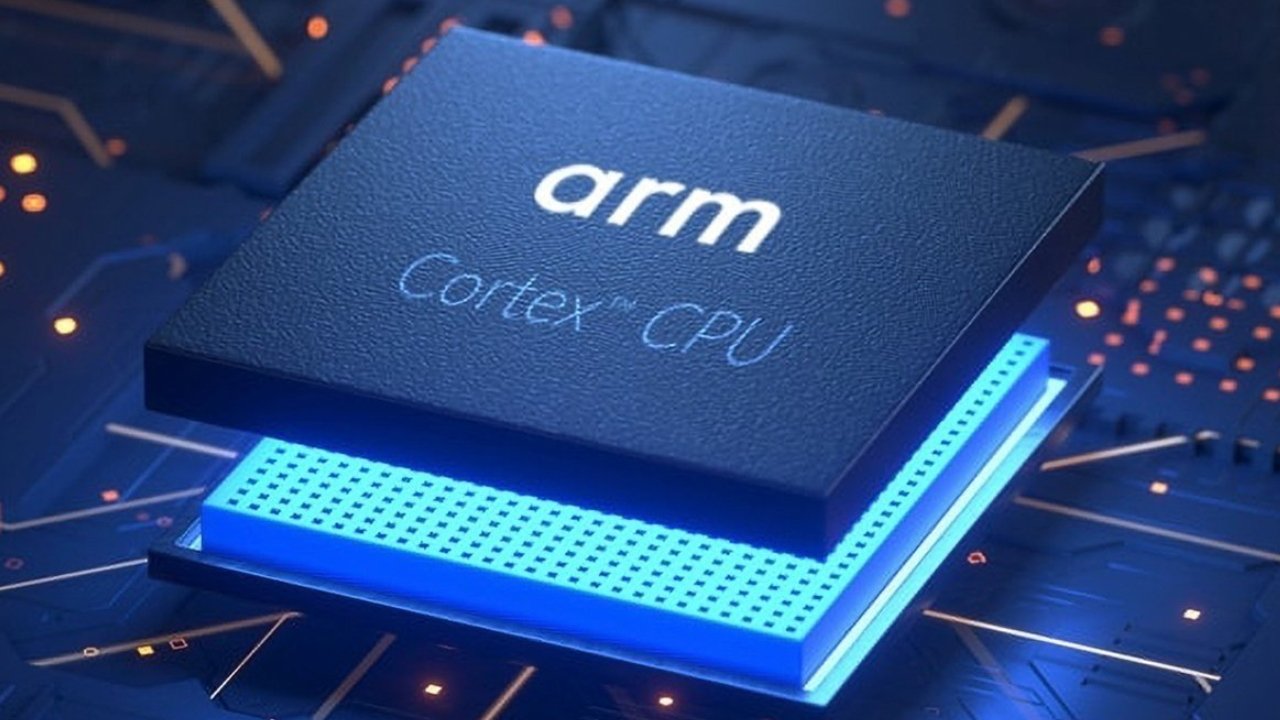
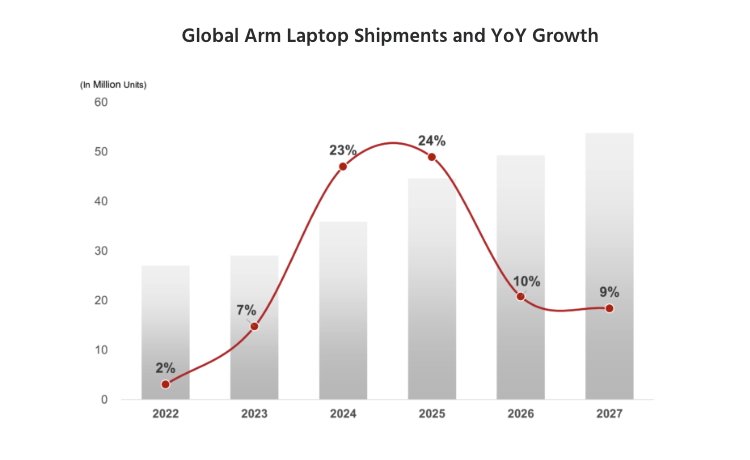

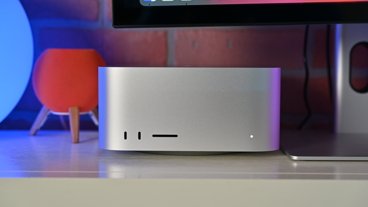





-m.jpg)





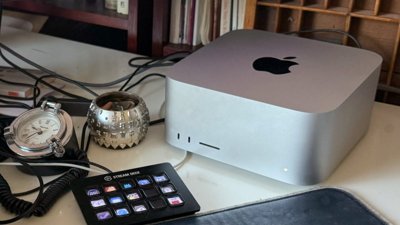
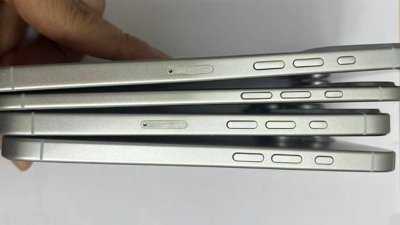



 Wesley Hilliard
Wesley Hilliard

 Christine McKee
Christine McKee
 Malcolm Owen
Malcolm Owen




-m.jpg)




14 Comments
Without an in-house OS it’s gonna be hard for Qualcomm and MediaTek to sell anything, however, maybe Microsoft can get that new AI to commit and design the OS…..
The PC market has been in trouble for a half decade at least.
Just like the high end custom big iron processors of yesteryear were replaced by the plucky Intel utilitarian CPU the
move to high efficient processing platforms has eradicated the need for high wattage CPU.
The chasm between productivity computing and gaming has never been larger. The gaming sector alone is propping up
Dinosaurs like ATX cases, replete with numerous fans.
Businesses are well covered by SFF computing (NUC and the like). Intel has been counseled for years about the need to
field a strong ARM competitor and they've just not enough headway.
I'm honestly more excited about the Raspberry Pi 5 (whenever it comes out) than I am about Intel's latest CPU releases (I know sample size but heh)
Meanwhile, Qualcomm has the Nuvia tech, which (if they ever ship a product with it) could also give Intel fits both in benchmarks and in actual product design.
Intel's best hope is to recapture process leadership and beat TSMC in the high-end foundry space. x86 is a dead man walking.